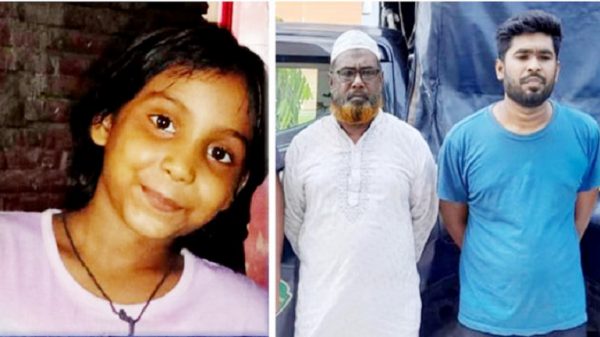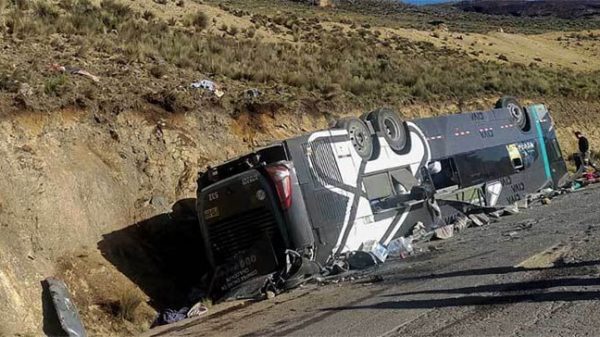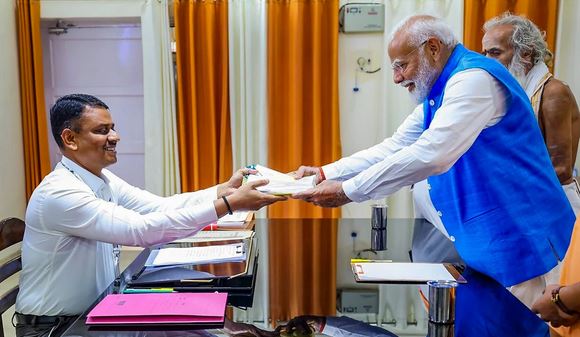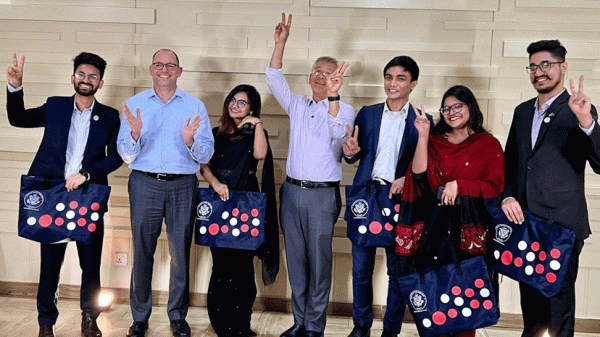Karobi, an underprivileged girl from Hamid Palli, a village in Kishoreganj district’s Mithamoin upazila said, “I never thought of going to school as the closest formal school is far away from our village. We need boats to go to the school. When a floating school was launched on board a boat on haor (wetland), it became easier for me to attend school. Now the boat regularly carries me to and from my home near an isolated island called ‘Hati’.
Liaqat, another underserved boy at the same Hamid Palli, said, “I did not study earlier as I did not feel good about it. As soon as a floating school was set up on board a boat in our inaccessible village, I started studying. Earlier, underprivileged boys like me lacked the privilege of education, but now it is possible. I am happy because the boat picks me up from my home and drops me there again after finishing class.”
Like Karobi and Liaqat, 420 disadvantaged kids in the inaccessible haor area are now able to receive primary education from two floating schools set up by the Dhaka Ahsania Mission (DAM), a major NGO in the country. DAM is implementing the innovative project titled Innovative Wetland Education Provision (IWEP) with the assistance of DAM-UK and funded by READ FOUNDATION UK. Apart from this, 10 ‘Hati’-based Children’s Learning Centres (CLCs) are also being operated under the project.
Hamid Palli is inhabited by around two thousand people. But the village lacks formal educational institutes like school, maktab and madrassa. Like an isolated island, the village remains underwater for almost half of the year. As to why, poor communities and families become isolated, without access to public services. People whose lives are dependent on haor (wetland) find transportation very difficult. Boats are the only means of communication with the rest of the country. As earning a living is difficult for haor people, they cannot think of educating their children at formal educational institutes located on the mainland, far away from their remote village. Against the backdrop, ‘Hamid Palli Boat School’ is an innovative educational initiative that provides educational facilities to underprivileged children of the isolated village. The Boat School project was chosen by DAM because of its innovative approach to providing basic education to children who are excluded from traditional schools due to seasonal flooding or other water-based barriers. The DAM Boat School project helps children in isolated communities gain access to quality education.
DAM Boat Schools are the product of a simple yet powerful idea: if underserved kids living in isolated areas cannot go to school, then the boat school should go to them. The schools are being run for three hours every day and six days a week. The main objective is to provide lasting and qualitative primary education to 588 out-of-school children aged 6–14 years.
Mithamoin Upazila Nirbahi Officer Md Ershad Mia said, “Boat school is fruitful. The standard of education is good enough and children are keen to attend school spontaneously. In boat schools, the drop-out rate is negligible in comparison to formal schools. However, more boat schools should be launched to provide education to underprivileged children.”
According to Mithamoin Upazila Education Officer Ruhul Amin, the pupils of boat schools are creative enough. They are being taught lessons in a joyful environment. Lots of education-deprived children from poor families in the area got a rare opportunity to learn through the boat schools.
DAM Joint Director (Education Sector) Md Moniruzzaman has observed that DAM’s Education Sector is relentlessly working to provide education to disadvantaged children. The project will remain operational in the future, too.
Project Coordinator A B M Sahabuddin said, “We deem the project to be a creative one. Because of inaccessibility of the area, we conduct the project activity in such a manner so that the children of the isolated communities are able to gain access to quality education by bringing school closer to them. It is the specialty of the project.”
The Boat Schools directly address education equity in the country and are a perfect example of innovation, impact, and scalability.






























Leave a Reply